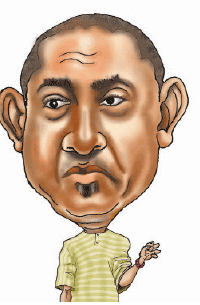Primary education is foundational. It could be described as the base of education. Where it does not exist, no superstructure is conceivable. At this stage, the only concept worth imparting is order. A child leaves its home and dependence on motherhood for the care of strange people called teachers, for guidance. A teacher who did not have good parental upbringing would be inadequate for children. Only properly oriented parents, who are aware of restiveness of infants, can offer appropriate guidance at this sensitive age of the human phenomenon. Colonial Nigeria had no pre-school education. Initial education was left with the family. Parents took on responsibility of discipline until school age. I saw the walls of a school first at age five. I do not remember clear details of what happened in my family, a middle class one of the late 1940s. No formal education took place in my home. My mother had no benefit of formal education and no guidance issued from her. Primary education should prepare children of school age for proficiency in numeracy and literacy. School age in colonial Nigeria was age five, after families had equipped children by informal education in formation of character by acquaintance with basic right and wrong conduct. The conduct of parents forms the indelible template of children’s conduct. From about three, impressions of the habits and character of parents starts making impressions on children. Children are watched and mimicked with ease. Notes are compared with other children as soon as spoken word takes root. Parents’ promises and other utterances are shared harmlessly among peers. Children at this age recount promises of goodies to their peers to gain awe and reverence from their peers. Pre-school education provides opportunity for socialisation beyond the family. Acquaintance with other children is the prime objective of kindergarten education. Discipline should be focused on with an eagle eye of real teachers. Right and wrong receive attention of teachers, as children in their infancy indulge in various fancies dictated more by whims and fancies than by conscious decisions. Although impressions are not etched on the psyche, it is vital for right upbringing to scold children when they indulge in dangerous games that may bring hurt and subsequent inconvenience. Toys come in handy to keep kids out of danger. A range of toys help parents establish inclinations of children. Their preferences are directly connected with their their talent areas. A prudent parent should soon establish the priorities that each child has in his relation to his parents, the environment and his options of engagements. Those who stick with particular parents are discovered and allurements are necessary, for each parents’ impression on the psyche of a child should be encouraged. At this time, no value for jobs out of the house should be considered by any parent, especially mothers. It could estrange a child beyond repair. Motherhood should imbue in children love and care, and dependence given under trained guidance. On no account should third parties be left with care of the child. For they imbibe character and habits of the third parties that could be so distant from parental character and habits that could warp the character and habits of the child out of rhythm with those of parents. Worse still, children could imbibe vile and dangerous habits emanating from third parties at a sensitive period of their lives which may prove irremediable in the long run. Families have evolved black legs through undue consignment of care of children to ill-mannered and unguided househelps, especially where their service has no monitoring content. Orientation to specific traits should be set out for househelps when using them becomes inevitable. While at primary school, teachers should be doubly watchful. Notes should be copiously made of conduct of children with a view to working with parents to correct negative and human degrading traits before such traits degrade the quality of schools. Educationists insist on periodic reports of character by which children’s trajectory in interpersonal relationships can be monitored and influenced when they prove adverse for the development of children. Positive values should be extolled. Gratitude for efforts made towards betterment should be expressed and remuneration and pats on the back given for good conduct shown. That way, good is branded into the psyche of kids without too much regimentation. “I am sorry” and “thank you” should be regularly requested of kids as vital for enduring interpersonal relationships. Such little statements are capable of averting undue tensions in the young life further down life’s journey. Besides, it keeps conflicts at bay in the future of a child. The teacher should come from round training of the right quality. At this time in our dear country, no such teacher exists in the education spectrum. It is a pity that post-colonial Nigeria has lost it all in terms of growing kids properly. It is the keg of gunpowder that could blow our Nigeria project to pieces if 20-year remedial action is not embarked upon speedily. Vagrancy engendered Boko Haram is here with us already. More disaster lies ahead. A 20-year emergency period of intensive Teacher Education is now a priority in primary education. Schools and furniture and books do not constitute proper schools. Schools, without qualified teachers with love for children and their future, avails Nigeria nothing. We are already on tailspin to a failed state. Our children are already lost to the darkness on account of failures of leadership.
Must Read
Matt Gaetz withdraws as Trump’s nominee for attorney general
Matt Gaetz withdraws from consideration as Donald Trump's attorney general
Former Republican Rep. Matt Gaetz...














